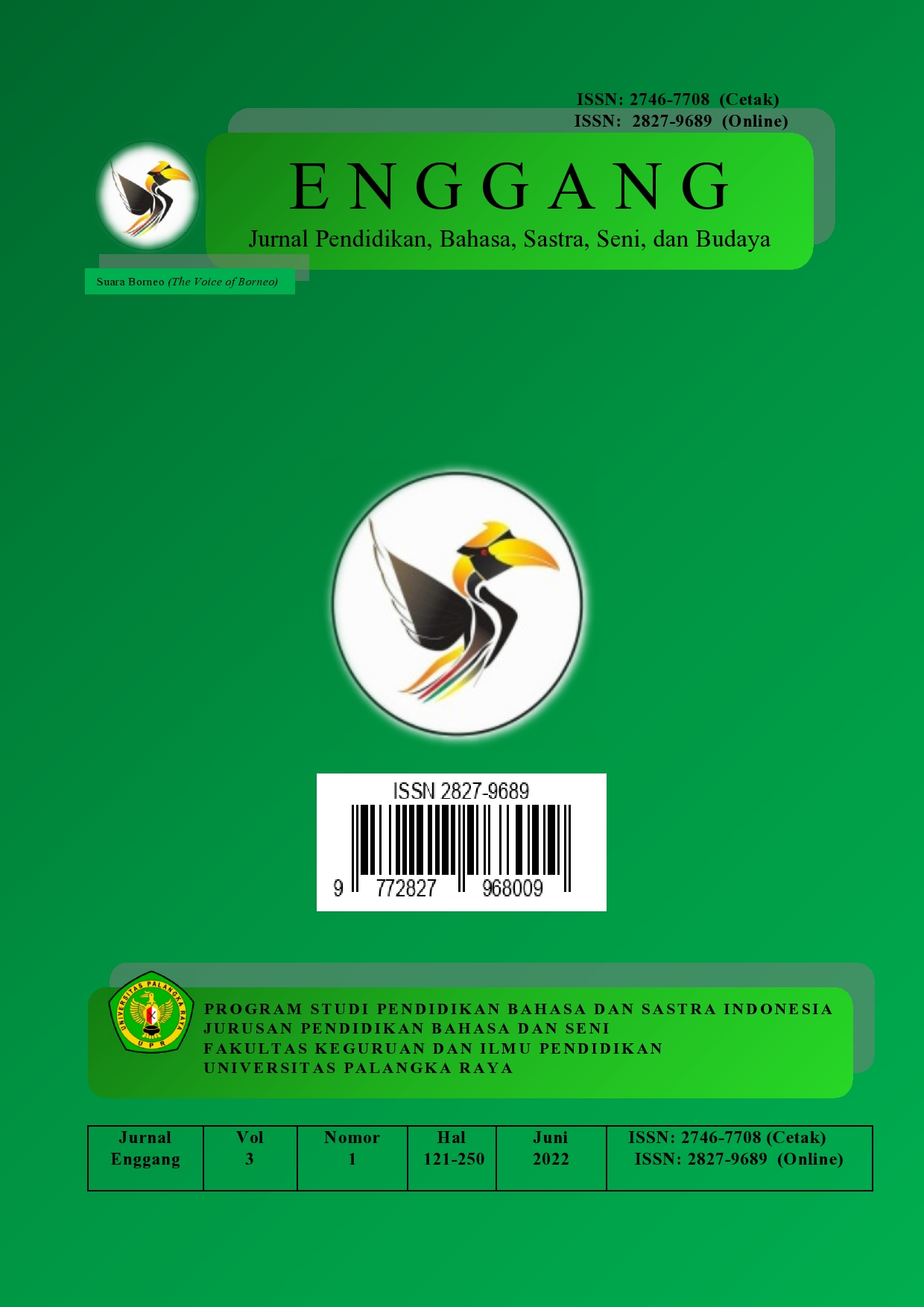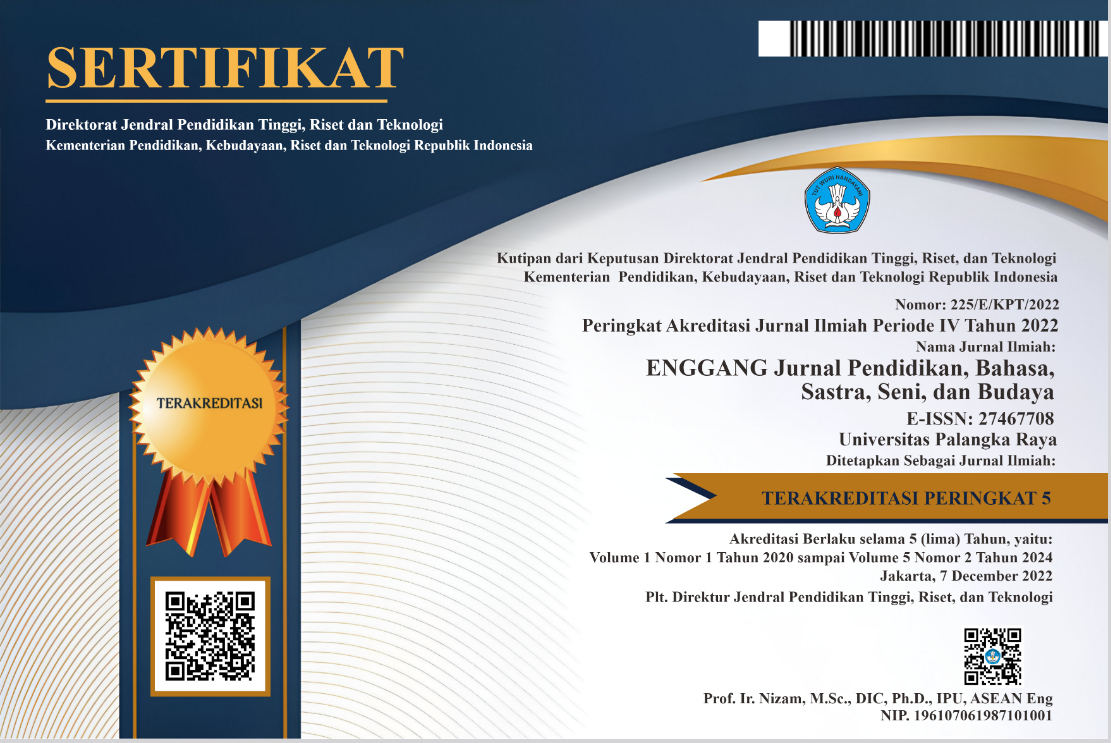Literature Review : Mengidentifikasi Kesadaran Diri Individu terhadap Pengaruh Pemerasan Emosional
DOI:
https://doi.org/10.37304/enggang.v5i2.12995Keywords:
Counseling Psychologist, Emotional Blackmail, Individual, ManipulationAbstract
Emotional Blackmail is a powerful form of manipulation where people closest to us threaten, either directly or indirectly, with the aim of making us feel guilty and making us anxious if we don't do what they want. Emotional blackmail is a concept presented by psychologist Susan Forward in the book "Emotional Blackmail".
The research method used is the Literature Review Study method using the book "Emotional Blackmail" by Zhou Mu-Zi. The purpose of this research is to determine the awareness of emotional blackmail experienced by several people from different perspectives in the book "Emotional Blackmail" by Zhou Mu-zi. The results of research from the books reviewed can be identified that many people fall into the cycle of emotional blackmail and few people are aware of emotional blackmail. This is proven by the impact and characteristics of emotional blackmail in several individual cases in the surrounding environment which were written and described in the book "Emotional Blackmail" based on true stories of victims who poured out their complaints to the author.
Downloads
References
Abdhul Azis, Yusuf. (2023). Studi literatur: Arti, cara membuat dan contoh. Sleman: Deepublish Store.
CC, Liu. (2010). The relationship between employees' perception of emotional blackmail and their well-being. Procedia - Social and Behavioral Sciences, 5, 299–303.
Coopersmith, S. (1967). The antecedents of self-esteem. San Francisco: Freeman and Company.
Fitriardi Wibowo, Rd Bily Parancika. (2018). Kekerasan verbal (verbal abuse) di era digital sebagai faktor penghambat pembentukan karakter. Dalam Seminar Nasional Kajian Bahasa, Sastra, dan Pengajarannya (SEMNAS KBSP) V 2018.
Forward, S., Frazier, D., & Newman, C. F. (1997). Emotional blackmail: When the people in your life use fear, obligation, and guilt to manipulate you. Journal of Cognitive Psychotherapy, 11(4).
Forward, S. (2019). Emotional blackmail: When the people in your life use fear, obligation, and guilt to manipulate you. Sydney, NSW: Harper Collins Publishers Australia Pty. Ltd.
Khan, M. W., Bilal, M., Khan, W. A., & Abbas, S. (2016). Strategy development through emotional manipulation in agents using Q-learning. International Journal of Computer Science and Information Security, 14(11), 395.
Kitchenham, B. (2004). Procedures for performing systematic reviews. Eversleigh: Keele University.
Mu-Zi, Zhou. (2017). Emotional blackmail. Ponorogo: Penerbit Haru.
Notoatmodjo. (2012). Promosi kesehatan dan ilmu perilaku. Jakarta: Rineka Cipta.
R, Adinda. (2022). Apa itu harga diri? Berikut pengertiannya menurut para ahli yang ada! Jakarta Pusat: Gramedia.com.
Santrock, J. W. (2012). Life span development: Perkembangan masa hidup (Jilid I). Jakarta: Erlangga.
Stolorow, R. D. (2015). A phenomenological-contextual, existential, and ethical perspective on emotional trauma. The Psychoanalytic Review, 102(1), 123–138.
Vidourek, R. A. (2017). Emotional abuse: Correlates to abuse among college students. Journal of Aggression, Maltreatment & Trauma, 26(7), 792–803.













